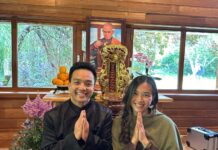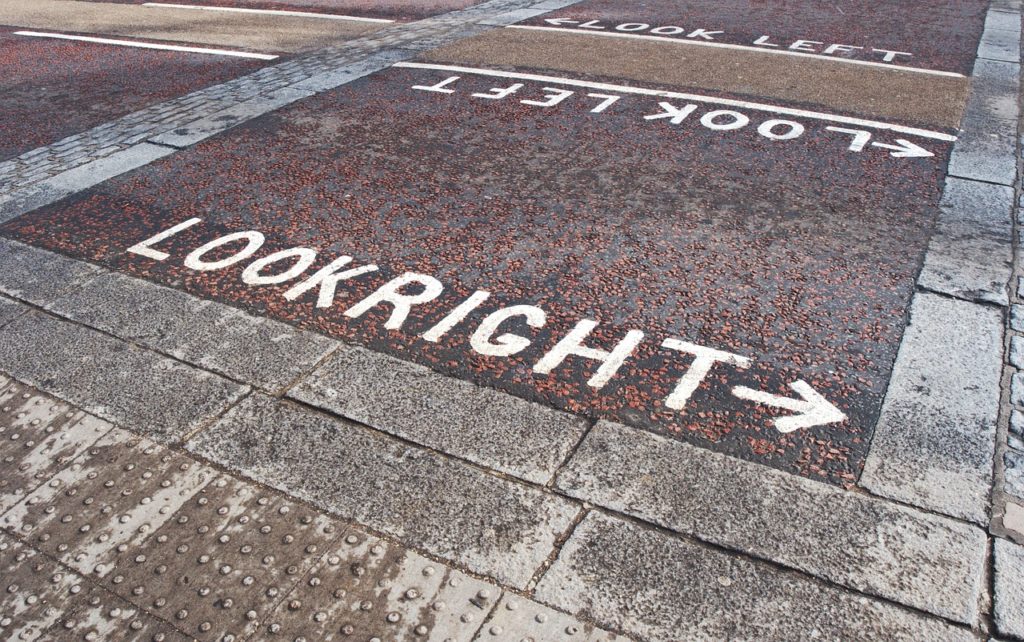By Jonathan Borella
We’ve met in person before. A couple times actually. In those moments, I appreciated your large and gentle presence. I felt at ease around you, no doubt encouraged by the warmth and friendliness you radiated. I don’t mean to project my perceptions on to you, but I sensed a commitment to integrity that made it easy for me to trust you. I remember feeling happy to have made a new friend.
Our recent encounters online, however, have left me feeling sad, dismayed, disappointed, and upset. Part of this is of my own making. In a moment when I should have acknowledged your pain resulting from our country’s history of and current oppression of vulnerable peoples—and expressed my solidarity more firmly with our shared commitment to transform violence and injustice—I instead chose to zero in on how I thought you were a misunderstanding my views. I asserted myself when I should have created a safe space for your anger and frustration to be heard. Though I still think you misunderstand me, I’m not trying to correct you anymore. Instead, I want to say that I am sorry for not listening to you more deeply and to offer that I am happy to discuss our views to reach a better understanding of each other with the presence of an impartial mediator
Looking back, I have identified several seeds with in my own mind that grew the bitter fruit we both consumed. One such seed is my enjoyment of argument and debate. When this seed is spliced with my guilty pleasure of witty and sarcastic writing, the result is a condescending tone that is not true to my actual beliefs or values. The other unwholesome seed our conversations have touched in me is pride. When you made derogatory comments about my skin color and intelligence, when you wished physical harm and death upon me, when you threatened to misrepresent my views to my community of family and friends thus slandering my character, my pride reacted by manifesting anger and fear. It made me disinterested in hearing you with warmth and concern. It is my aspiration to transcend that impulse even as my ego is being insulted, but I see that I’m not all the way there yet. I still need support.
Those of us committed to peace and nonviolence are left to wonder how do we take a stand against hate without becoming hateful?
It would support me very much if, in the future, I post or say something you disagree with and want to comment on, you initiate a conversation with me by saying something like, “Jonathan, I disagree with these things you said. Here’s why and here are some links to resources that inform my thinking.” That is the kind of conversation I am interested in having. That is the kind of conversation I can learn from, and that is the kind of conversation that has shaped my current views.
I know that reading this won’t make my views any clearer to you. But, I hope that it will at least express my intention so that we may begin anew and hear each other better next time.
This experience has been a wake up call to me regarding how to confront hate in the world and online. It is especially salient in the shadow of Charlottesville. My social media wall is just plastered with outrage and righteous indignation, and it makes me very sad to see people calling themselves advocates and allies of vulnerable people actually advocating for violence against people they disagree with and allying with fascist policies regarding free speech. Those of us committed to peace and nonviolence are left to wonder how do we take a stand against hate without becoming hateful? How do we take a stand against oppression without becoming oppressive? Where is our place in conversation and demonstration?
As my mistakes have shown, I am not an exemplar of a perfect strategy in this regard. But I am learning from my failures to communicate effectively and have undertaken a conscious effort to get better. So, I’d like to share my aspiration, a vision of how I would be like when I am at my best and trying to live with joy and compassion in a world so full of hate.
When we encounter hate in a person or online, it can be helpful to reframe it as fear for which the only appropriate remedy is love.
The discourse on love was given by the Buddha has an antidote to his monks’ fear of haunting spirits. The great insight of the Buddha was that fear, not hate, is the opposite of love. Thus, when we encounter hate in a person or online, it can be helpful to reframe it as fear for which the only appropriate remedy is love. This text has provided the most inspiration for how I want to be in the world. It’s beginning passage has also provided the most useful instruction for encountering today’s social climate.
The discourse begins: “He or she who wants to attain peace…”
When the Buddha asks us if we want to attain peace, we have to understand that peace is not an individual matter. There is no peace in oneself without a commitment to bringing peace to the world. Otherwise, it is just a kind of blissful ignorance – an intoxication with delusion. Any person who wants to attain peace must be one who wants to attain it for everyone.
“He or she who wants to attain peace should practice being upright, humble, and capable of using loving speech.”
On being upright. Since the presidential election, I have chanted this discourse twice a day. The election was eight months ago, so I’ve had the chance to contemplate every word of this discourse deeply. It turns out, “upright” is an especially rich word. In my own practice, uprightedness has evolved to reference all of physical, emotional, and ethical postures.
An upright physical posture is one that conduces to wakefulness, poise, and discipline. It is a posture that is ready to act and engage with oneness of body and mind. With body and mind thus unified, uprightness becomes an element of emotional well-being. It is a posture that is at home no matter where one stands, sits, or lies down. It is also a posture that is at home no matter who one is. Regardless of skin color, religion, or class, one who is upright knows they belong in this world and everyone has a place in it—though it is not a matter of “my place is over here and your place is over there.”
We must exercise our own freedom of speech to denounce views that are oppressive and violent and ensure that they never become a part of public policy.
When one is upright emotionally, their being radiates dignity and grace. We are all at the same time at home and guests. Thus, uprightedness implies a specific ethical obligation. The rights and privileges we enjoy, we must make available for all to enjoy. Decisions that affect the public domain must be debated publicly with no closures of access to conversation to or from any demographic or individual. We must respect the right to freedom of speech for all people and never be a source of concern for one’s livelihood or safety for expressing their views. We must, however, exercise our own freedom of speech to denounce views that are oppressive and violent and ensure that they never become a part of public policy. If one is upright in these three ways, then they are already acting within their own immediate sphere of influence and making a valuable contribution to peace and justice in society.
On being humble and capable of using loving speech. Here is where the discourse shows me my shortcomings. When we witness events that offend our politics or morality, our reaction will lie somewhere on the spectrum between compassion and outrage. It is when my ego is wounded that I tend toward outrage as demonstrated in the communication breakdown between my friend and I online. Angry, rather than loving, speech ensues.
The problem with angry speech is that it initiates within my conversation partner the same pride based cycle from which I am reacting. It only takes a couple exchanges of dialogue before both of us become entrenched in our own views, and neither of us are interested in understanding the other. This is no recipe for peace. The proper treatment for a wounded ego is humility. Humility is the recognition that one’s own view is narrow and does not contain all the answers.
From here one’s attitude shifts from one of self-assertion and self-defense to one of curiosity and concern. With humility we are able to ask questions to understand people better. We may even help them understand themselves better, and we can speak directly to the fear that is at the foundation of the hate and bigotry we observe. This is loving speech. It is important to remember that loving speech is not a method of persuasion. There are some people who will never change their views no matter how much loving speech we use. We should oppose people with violent and oppressive views in every ethical way possible, and we can do so without anger or hatred in our hearts.
The discourse continues: “He or she will know how to live simply and happily the senses calm without being attached or carried away by the emotions of the majority.”
The proper treatment for a wounded ego is humility.
On living with senses calmed. Scrolling through my Facebook feed is a sure way to bring mayhem to my senses, especially after a tragic event like what has happened in Charlottesville. The mind becomes enchanted so that it takes in images and words in a frenzied way ad absurdum to the point of redundancy. As I’ve noticed my mind operate this way, I see my thinking become disorganized.
My senses dull and my behavior becomes more impulsive. To ingest media in a way that preserves clarity and calmness of the senses is to do so with the awareness that news articles are designed to provoke an emotional response to draw you in. If ever you feel, as a responsible citizen, compelled to stay informed bring this fact to mind: news is not meant to inform you. It is meant to captivate your attention for the sake of generating clicks and profit and the surest way to do so is to manipulate your emotions.
To live with senses calmed is to ingest media with an eye only toward the facts and to stop when one has had enough. All else is just the opinions of other people trying to influence your opinion. Instead, we should learn the facts of the matter and form our own opinion. This can be done with surprisingly little interaction with social media. How many images of Nazi flags, screaming faces, and people getting beaten do I really have to see to simply know what happened? How many words of rhetoric do I really have to read to judge the general zeitgeist? The answers are one and a few.
On being carried away by the emotions of the majority. When our senses are not calm, it is easy to get swept up in the views, attitudes, beliefs, and feelings of whichever religious, political, socioeconomic, or other group with which we most identify. This breeds a kind of tribalism that is completely incompatible with peace. It may take a deep level of awareness to observe it happening in one’s own consciousness.
To live without being attached and carried away by the emotions of the majority means to be a refuge onto oneself secure in an identity that is free from doctrine and dogma.
In myself, I’ve noticed it operating as I defended certain political positions not because I thought particularly in depth about them but because they were associated with a group I identified with. Thus political statements are often less about who we are advocating for and more about how we choose to brand ourselves and create an identity through group belonging, and we declare our group belonging when we adopt its ideology, dogma, and doctrine, as our own. This is especially important to remember whenever I feel an urge to lash out at someone for considering a view different from my own.
I suspect that my friend, who lashed out at me online, and I really don’t differ very much politically. I’m willing to bet that our ballots look nearly identical. Yet, because I made a nuanced statement that deviated slightly from our political tribe’s rhetoric, I was labeled as “other”—one of “them” worthy of disdain, pain, insult, and death. To live without being attached and carried away by the emotions of the majority means to be a refuge onto oneself secure in an identity that is free from doctrine and dogma.
As a refuge onto oneself, one becomes a refuge for all because they no longer see people in terms of the group in which they supposedly belong. Instead, they meet all people equally as individuals. Being a refuge unto oneself may sometimes call us to be a force of resistance. Thus, I am suspicious of any movement that makes doctrine mandatory through social pressure and criticize groups that enforce consequences for non-conformity.
Those who pride themselves on being activists may assert that the approach for confronting hate that I aspire to is not enough, especially for one with power and privilege. In contrast, I appeal to the definition of ethics and imagine a world in which everyone adopted such an approach. It is clear that it is indeed enough simply to be a good person toward everyone with whom one interacts. On the other hand, matching anger with anger, hate with hate, and oppression with oppression seems only to proliferate intolerance and entrench people within opposing political ideologies. How will we ever build peace that way?
If I could repeat my online conversation with my friend, I know which approach I take.


















Wow. Just wow. Wonderful thoughts! I aim to follow this path, it’s so nice to see it laid out so succinctly. Thank you for your words and leadership.
Hi,
When people express outrage very often there is also pain and a feeling of hopelessness behind it. In a way it’s telling us that those people are not indifferent to the suffering they see in the world, which is good; often they get carried away by the anger they feel. That’s the challenge.
It is not always possible to achieve harmony with everybody. Some people are just inmune to dialogue, regardless of what you may say, their time is spent thinking about how to “win” the “argument”, which doesn’t enrich anyone. I have learnt not to engage in those occasions.
On the other hand, silence often meets valuable thoughts expressed by people. In these same page, or perhaps FB page, I remember once a text about Obama. He was portrait as a bodhisattva (I think this was said). Quite a few people expressed confusion as this statement and gave reasons why. Silence from whomever posted the text followed. That does not enrich anyone either. Silence can be read as indifference, a dogmatic attitute or a lack of acknowledgment for those in front of us. If we post something, provided the responses are made out of respect, we should be ready to engage.
Online discussions seem to lend themselves to more misunderstandings and bad feelings between people because we miss body language, tone of voice, and the presence of each other. Behind a keyboard, somehow we lose some of our humanity sometimes, I think. We then realize how pointless that is, mainly when those we hurt are close friends or family who are part of our lives.
I’m trying to teach myself in using humour to deter tension, it’s a great tool, not sarcasm, but humour. Not always easy 🙂
Regards,
Rocio
Nice, thank you so much for this.